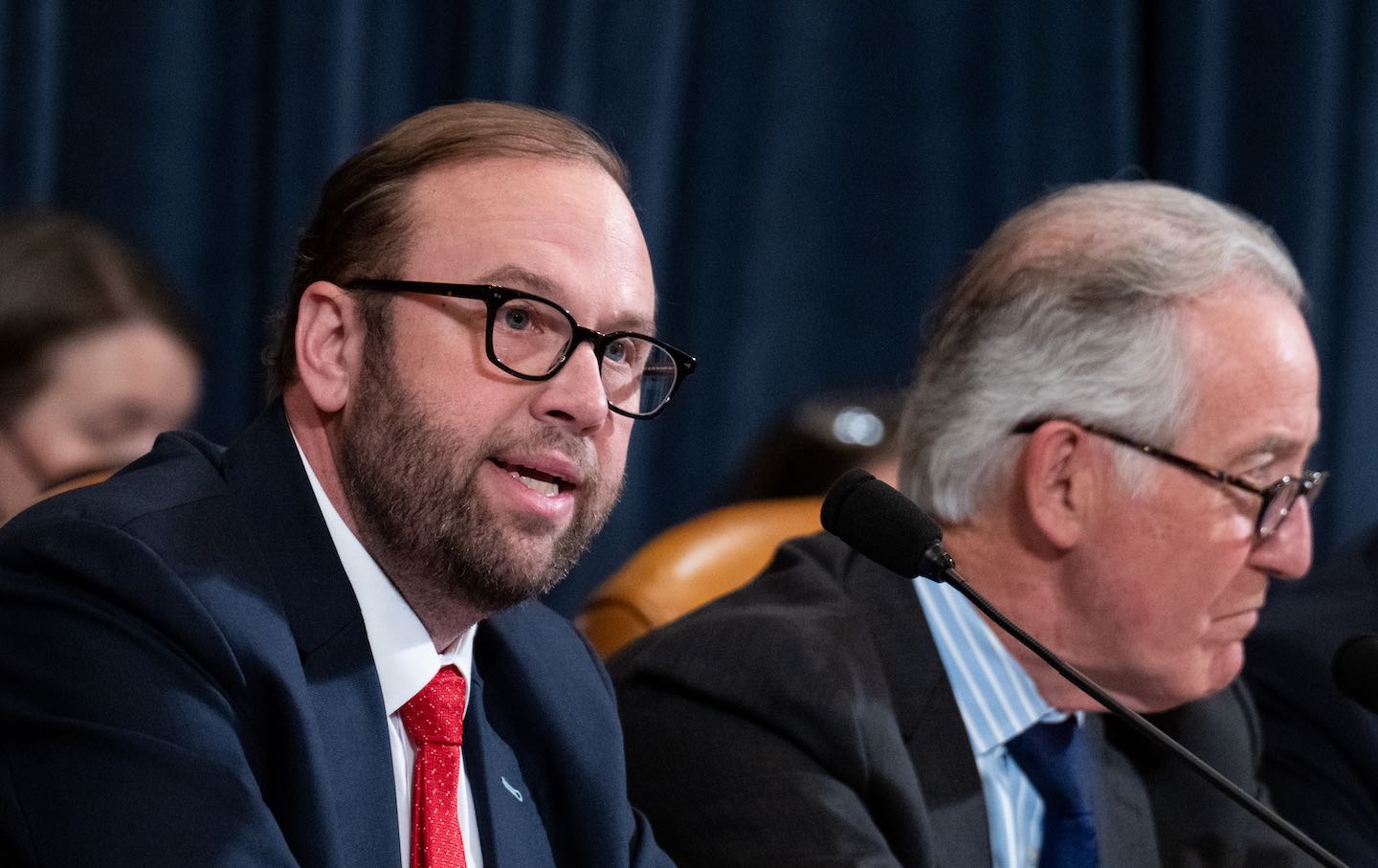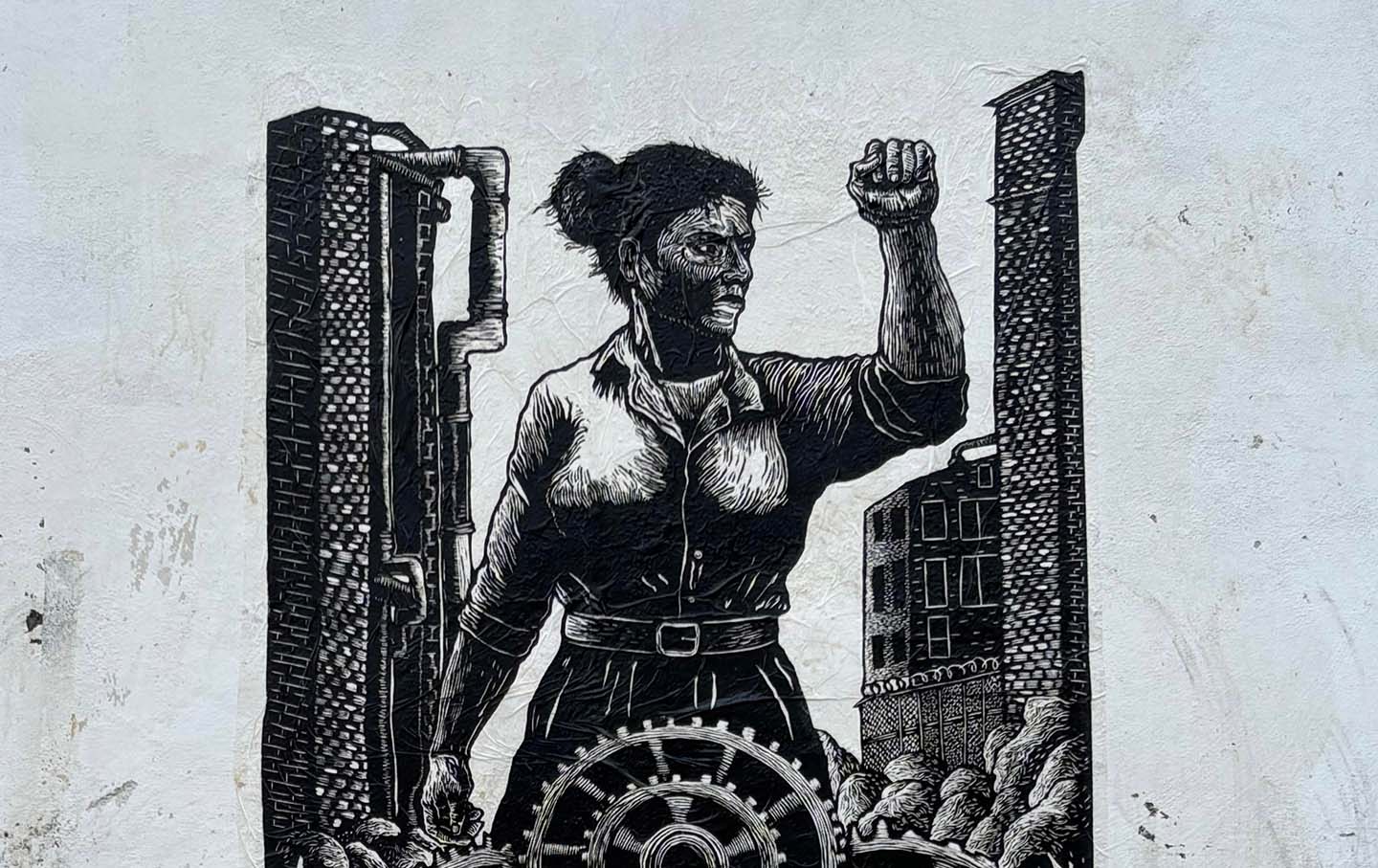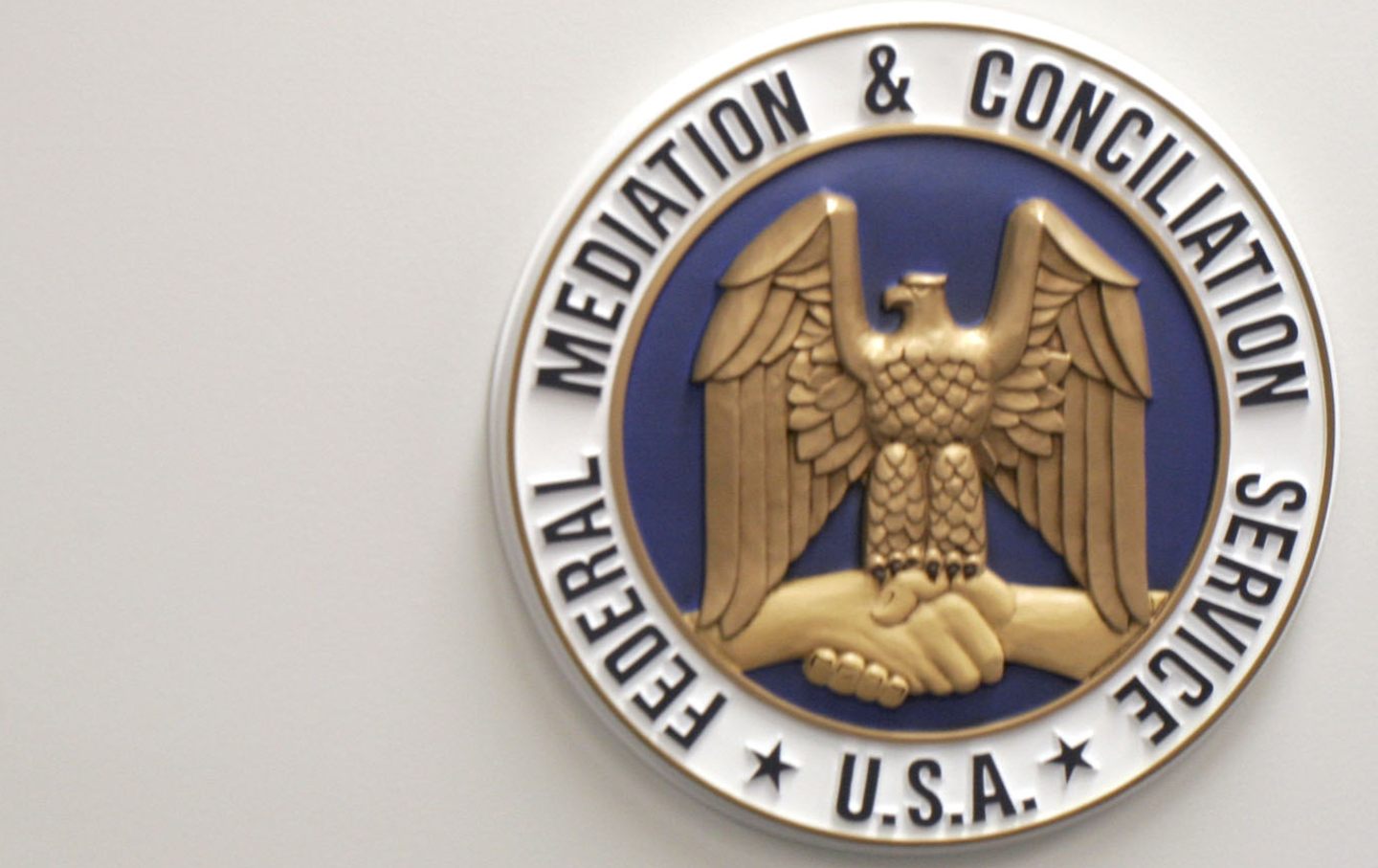The Bipartisan War on Pro-Palestinian Activism
A House bill asks the Treasury to revoke the nonprofit status of suspected “terrorist supporting organizations.” Advocates are already singling out Muslim and Palestinian groups.

House Ways and Means Committee Chairman Jason Smith (R-MO) and ranking member Richard Neal, (D-MA) in the Longworth House Office Building in Washington, DC.
(Bill Clark / CQ-Roll Call, Inc via Getty Images)If truth is the first casualty of war, speech is a close second. This year, the vicious police crackdowns against campus demonstrations addressing the Israeli invasion of Gaza have given a crash course in this axiom. But well before this effort to shut down and criminalize free expression, the US Congress had already initiated a new legislative offensive against organizations advocating for Palestinian rights: HR 6408, a regressive bill introduced in November 2023 and approved by an overwhelming bipartisan majority in mid-April. The bill, which will be debated in the Senate this coming week as SB 4136, empowers a single government functionary to rescind the tax-exempt status of nonprofit groups based on that selfsame functionary’s unilateral determination that they are “terror-supporting.”
It takes no great effort to work out just what groups Congress wants to single out under the bill. House Ways and Means Chair Jason Smith (R-MO) laid it out quite explicitly during last fall’s committee hearings on the measure: “Tax-exempt charities operating in the United States are providing support, encouragement and potential financing for Hamas,” he insisted, before going on to try to shore up this sensational claim by conjecture. He reprised the history of the Holy Land Foundation, a Hamas-affiliated organization shut down in 2001 after Congress passed an earlier bill targeting nonprofits and charitable groups involved in terrorism. Now, Smith noted, a group called American Muslims for Palestine is facing a lawsuit charging that it’s “operating as an alter ego for the Holy Land Foundation.” He claimed that the groups “have many of the same leaders, and may be continuing the same efforts to support Hamas.”
That “may be” was doing an awful lot of work. Considering that it’s long been the law not only for nonprofits but all US entities to refrain from supporting terrorism, if the claims of the pending American Muslims for Palestine suit prove out, the group would then immediately be barred from claiming tax-exempt status, or otherwise doing business, in the United States. So why the push for a new crackdown? Smith supplied a partial answer as he continued pressing his case in rhetoric that’s now being echoed by the speech-baiting congressional leaders of the GOP:
The eruption of hatred towards Jewish students on college campuses after the October 7 attack has been disturbing to watch. But the organization around it is not some organic movement. It has been carefully built over the years in part by American Muslims for Palestine. They have helped build, shape, and train a group called Students for Justice in Palestine, or SJP. Many SJP events have involved pro-Hamas slogans and have led to intimidation, harassment and violence against Jewish students.
In other words, to clamp down on speech Congress finds objectionable—and chooses to ascribe to a conspiracy of student brainwashing rather than principled opposition to a war of collective civilian punishment—a new category of “terror-supporting” activity has been created to stigmatize and punish political opponents.
The same refrain is coursing through Congress now, as campus protests of the Gaza war spread across the country: After initially trying to finger TikTok for the rampant radicalization of American youth on Middle Eastern politics, leaders on the right are tracing it to the machinations of sinister nonprofits. And the mood of moral panic is reflected in the provisions of HR 6408; instead of ratifying legal inquiries in cases where nonprofit terror support is alleged, the bill simply empowers the secretary of the Treasury to revoke a group’s nonprofit status 90 days after making the unilateral determination that it supports terrorism.
“This looks like almost dictatorial power given to a single political appointee, who will serve as prosecutor, judge, jury, and executioner,” says Lara Friedman, the president of the DC-based Foundation for Middle East Peace, whose late April X thread on HR 6408 drew the first wave of significant public attention to its fiercely anti-free-speech MO. “This is about how you accuse and hold accountable American citizens in violation of US material support laws, and there’s a well-established way to do that that involves due process. This is a new track to do that without any due process protections.”
The case against SJP drives this point home in stark relief. For all the overheated rhetoric about the group on the right, the “vague, indirect connections” at the heart of the charges of Hamas collaboration “have not been nearly enough to punish Students for Justice in Palestine legally,” writes Reason magazine correspondent Matthew Petti. Indeed, around the time the House held hearings on HR 6408 last fall, Florida Governor Ron DeSantis did what Congress now wants the Treasury director to do, and tried to shut the group down in his state by executive fiat. But when the group responded with a First Amendment lawsuit, Florida officials rapidly dropped the whole thing. HR 6408 is designed to give more legal authority to demagogic leaders like DeSantis. “Under the proposed bill, murky innuendo could be enough to target pro-Palestinian groups,” Petti writes. “The bill’s authors believe that some charities are too dangerous to give tax exemptions to, but not dangerous enough to take to court. Although the label is supposed to apply to supporters of designated terrorist groups, nothing in the law prevents the Department of the Treasury from shutting down any 501(c)(3) nonprofit, from the Red Cross to the Reason Foundation.”
“This is about being able to rescind SJP’s tax exemption,” Friedman says. “I don’t think a lot of people in Congress want to get up and say ‘I’m going to defend this group that allegedly has ties to Hamas.’ And since no one will make a courageously factual case that this is bullshit, that’s how all this got traction.” It’s a familiar dynamic for groups like Foundation for Middle East Peace, which advocates for just outcomes in the Israel-Palestine conflict. “This is very much along the lines of the anti-BDS legislation that passed in state legislatures,” she adds. “Back then, everyone sort of overlooked that, thinking it was a narrow Israel-Palestine issue that didn’t really concern anyone else. And now that legislation is the template for anti-DEI bills and other legislation that punishes speech.”
It’s also just the beginning of the congressional backlash against protests that seek to promote solidarity with Palestinians on campus. Late last week, New York Representatives Ritchie Torres, a Democrat, and Mike Lawler, a Republican, introduced a new bill to station federal monitors of antisemitism at select private college campuses. Failure to comply with the bill’s mandate would jeopardize federal funding for the institution in question. Lest there be any confusion about its origin and aims, the bill is called the “College Oversight and Legal Updates Mandating Bias Investigations and Accountability Act—or COLUMBIA Act.”
Given the fraught state of discourse surrounding the present wave of anti-Gaza protests, it’s not hard to envision a ratified COLUMBIA Act being used by hardcore supporters of the Gaza war—and skittish campus administrators—to dismantle Arabic and Middle Eastern studies programs outright. “What they’ve got there is the complementary legislation to Trump’s executive order, which makes the International Holocaust Remembrance Alliance (IHRA) definition the official definition of antisemitism”—a version of the term that Palestinian activists have protested on the grounds that it equates Judaism and Zionism, says Friedman. “Then you create this monitor, and the IHRA definition becomes the official definition of antisemitism on campus.”
It’s always tempting, given Congress’s steady transformation into a glorified theater of culture warfare, to shrug off such measures as mere donor-pandering on autopilot. But the repercussions of such posturing in the real world are all too chilling. “They’re saying that the IRS should be using a political litmus test to determine a group’s nonprofit status,” Friedman says. “That should alarm anyone.”
Support independent journalism that exposes oligarchs and profiteers
Donald Trump’s cruel and chaotic second term is just getting started. In his first month back in office, Trump and his lackey Elon Musk (or is it the other way around?) have proven that nothing is safe from sacrifice at the altar of unchecked power and riches.
Only robust independent journalism can cut through the noise and offer clear-eyed reporting and analysis based on principle and conscience. That’s what The Nation has done for 160 years and that’s what we’re doing now.
Our independent journalism doesn’t allow injustice to go unnoticed or unchallenged—nor will we abandon hope for a better world. Our writers, editors, and fact-checkers are working relentlessly to keep you informed and empowered when so much of the media fails to do so out of credulity, fear, or fealty.
The Nation has seen unprecedented times before. We draw strength and guidance from our history of principled progressive journalism in times of crisis, and we are committed to continuing this legacy today.
We’re aiming to raise $25,000 during our Spring Fundraising Campaign to ensure that we have the resources to expose the oligarchs and profiteers attempting to loot our republic. Stand for bold independent journalism and donate to support The Nation today.
Onward,
Katrina vanden Heuvel
Editorial Director and Publisher, The Nation








